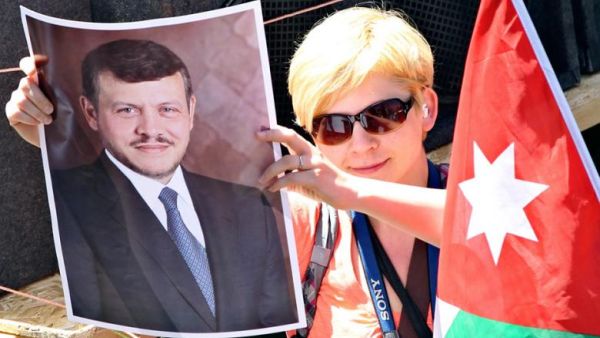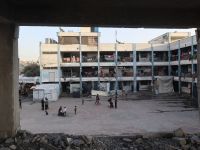The homogeneous nature of Jordanian newspapers means that a Jordanian citizen needs just one local paper to know the day’s news. As a matter of fact, all he or she needs is PETRA, the Jordan News Agency.
For example, on 11 February 2012, the five Jordanian dailies (al-Rai, al-Dustour, al-Ghad, al-Arab al-Yawm, and al-Sabeel) all published their daily editions with little variations in content.
Three included PETRA’s transcript of King Abdullah II’s inaugural speech to parliament, along with an exact replica of its headline: “The King: We Will Continue to Work Diligently to Consolidate the Status of the Parliament as the Source of All Powers.”
Al-Sabeel, the mouthpiece of the Muslim Brotherhood, framed the speech differently, finding in it justification for their own electoral boycott. Its headline read: “The King Calls for Reviewing the Electoral Law.”
Although Amman is full of colorful stories, its press adheres to a monolithic mentality that adopts one narrative, tailored by the powers that be.
Local news is full of flimsy reports that reflect nothing more than the official discourse. Opinion columns dominate the newspapers. The writers differ only in so much as the parties in power differ. If all these parties happen to agree on a certain issue, then all the writers will speak in a single voice.
Because the city’s memory is one that disappears at rulers’ whims, the writers change their stances whenever necessary. For example, many have forgotten their previous objections to the electoral law and the “impossibility of forming parliamentary governments.”
The new line is to glorify the king’s latest call on parliament to shoulder its responsibilities in “making the historic transition into parliamentary governments a success and developing its rules and procedures.”
The king’s speech is dealt with as a news commodity that is packaged and sold to the public.
Jordanian newspapers’ economic sections have expanded recently, but with few changes. Their reports are the same regurgitations of PETRA’s filings. The main change is that there’s more allotment for advertising, along with a couple of articles that timidly criticize the government’s economic policies.
If we look at the Arab and international news sections, the editors’ views of regional crises are missing. Reports from international news agencies are published with zero modifications. Yet the editor will not forget his routine censoring duties as he closely examines the columns.
If an inappropriate news item somehow manages to slip past the censors, it’s likely that the readers – who do not exceed 100,000 out of a population of 7 million – will not notice. The decision makers, though, will certainly be on the lookout for such deviations.
By Mahmoud Munir
Do you think Jordan's media does little more than serve its royals or do you disagree? Share your comments with us below!








